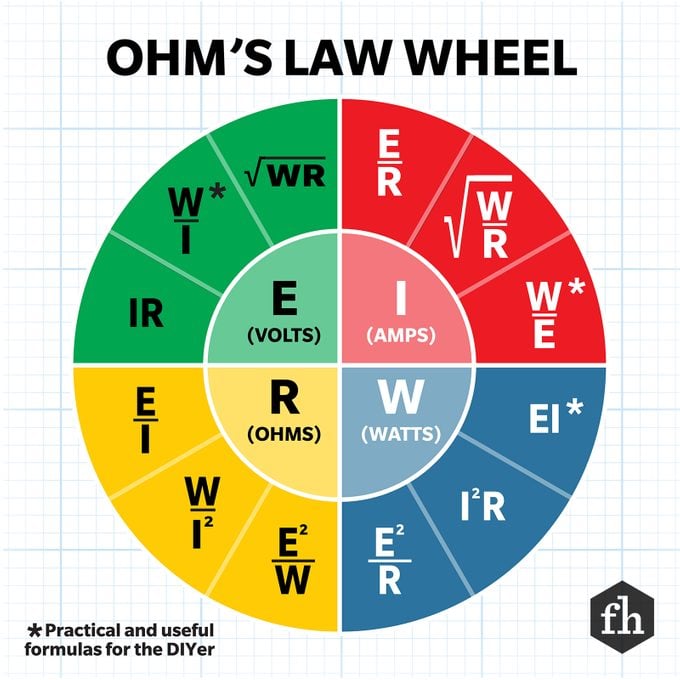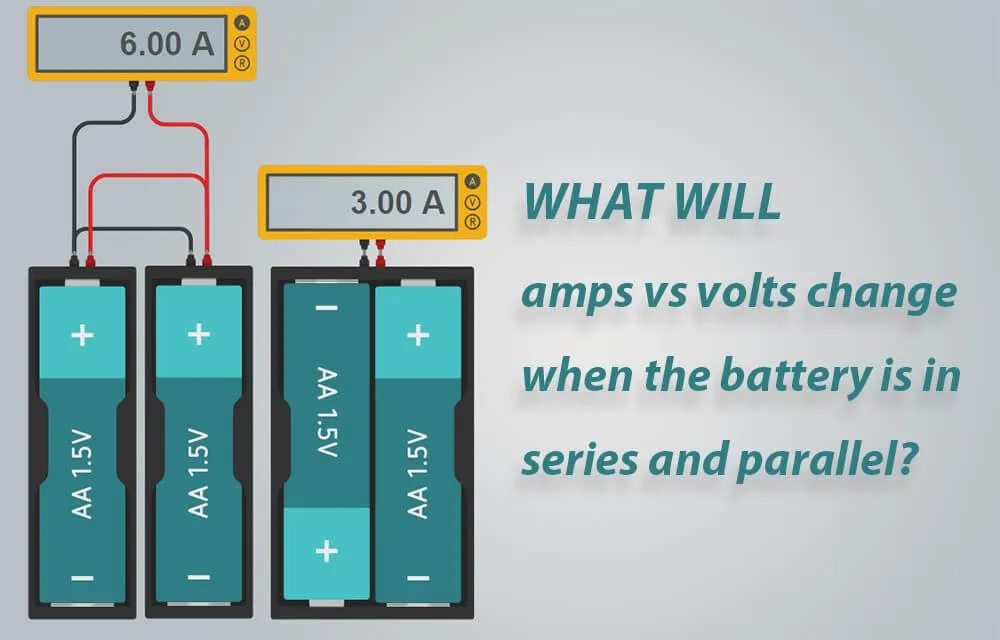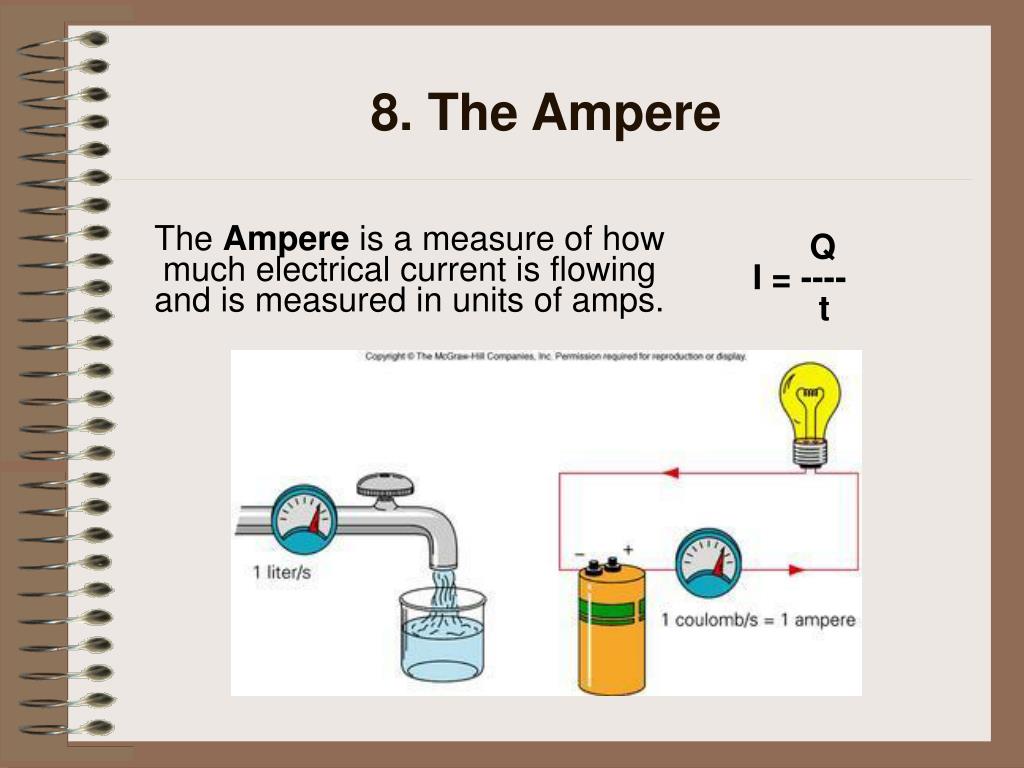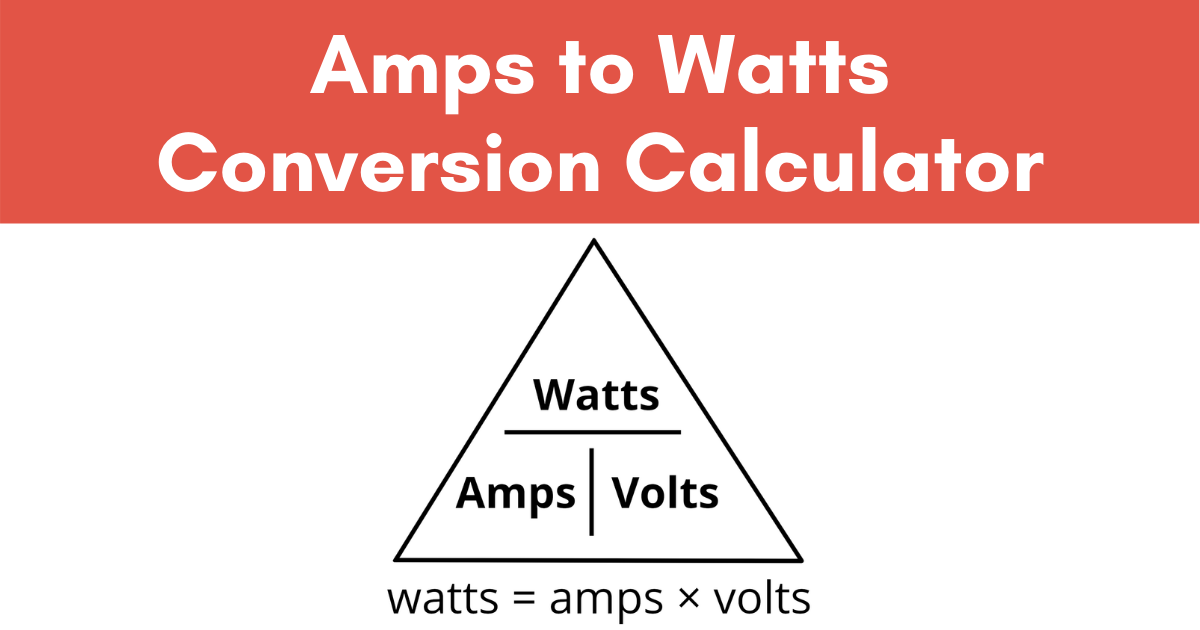Casual Tips About Is I And Ampere The Same

Watts, Volts, Amps And Ohms Explained The Family Handyman
Navigating the Tiny World of 'I' and 'A'
1. The Curious Case of Single-Letter Words
Ever stopped to ponder the sheer power held within a single letter? We often breeze past them, but words like 'I' and 'a' (or 'an') are fundamental building blocks of the English language. They're like the unsung heroes quietly supporting every sentence. But are they interchangeable? Are they essentially doing the same job? Let's dive in!
Think about it. 'I' represents the speaker, the self, the person writing or talking. It's intensely personal. 'A' and 'an,' on the other hand, are articles. They're pointing fingers (figuratively, of course) at nouns, indicating whether something is specific or general. So, on the surface, their roles seem pretty distinct.
However, the simplicity is deceptive. Consider how frequently these words appear. They might be short, but their impact is enormous. Without 'I,' personal narratives would collapse. Without 'a' and 'an,' we'd be swimming in a sea of undefined nouns. Its like trying to build a house without nails possible, perhaps, but definitely shaky!
So, while they are both short words, crucial for forming sentences, they serve different purpose which is subject versus object.

'I' vs. 'A/An'
2. Decoding Their Grammatical DNA
Let's get a bit more technical, shall we? 'I' is a pronoun, specifically a personal pronoun. It stands in for the name of the person speaking. It's always capitalized (unless, of course, you're trying to be intentionally quirky). Articles like 'a' and 'an' are determiners; they modify nouns, providing information about their definiteness.
Imagine this scenario: "I saw a dog." Here, 'I' is the one doing the seeing, the subject of the sentence. 'A' tells us we're talking about one dog, but not a specific dog. If it was a particular dog, we'd say "I saw the dog." See how that changes things? A subtle shift, but a significant one in meaning.
The choice between 'a' and 'an' depends solely on the sound of the word that follows. If the following word begins with a vowel sound, you use 'an' (an apple, an hour). If it begins with a consonant sound, you use 'a' (a dog, a university even though "university" starts with a vowel, it has a consonant sound). Grammar, folks, is a game of rules and exceptions!
Therefore we can now clearly determine that 'I' and 'A' are fundamentally different parts of speech, with distinct roles in sentence construction.

PPT Electricity And PowerPoint Presentation, Free Download
Context is King
3. The Art of Interpretation
Now, where might people get confused? Perhaps it's the sheer frequency of these words. We see them so often that we stop really seeing them. Or maybe it's because, in some very specific contexts, they can appear to be used similarly. But appearances can be deceiving!
For instance, in a fill-in-the-blank exercise, you might be asked to choose between 'I' and 'a' to complete a sentence. However, the correct choice will always depend on the grammatical role required in that particular spot. Is it a subject? Use 'I'. Is it a determiner modifying a noun? Use 'a' or 'an'.
Consider incomplete or informal speech. Someone might say "Me and John went to the store." While grammatically incorrect (it should be "John and I went to the store"), the intended meaning is clear. It's a slip of the tongue, not a fundamental misunderstanding of grammar. This is where understanding grammatical correctness trumps casual spoken language to write or explain the differences.
This is where grammar knowledge matters, especially when communication to an audience is important, such as writing online posts or even emailing colleagues at work.

Watts, Volts, Amps, And Ohms What Are The Differences
Memory tricks that works
4. How to help remember it
Sometimes you can have a hard time remembering it, but in this section, you are going to learn new things that can helps you distinguish it.
'I' is about Identity.'A/an' is about quantity or description.Therefore when talking about your self, you would choose 'I' and describing something, you would choose 'A/An'.
You can also come up with rhymes that will help you to remember, this is a fun and easy things to do. For 'I', you can relate it to Eye, for example "I spy with my little eye" or "I is me, and me is I". For 'A/An', it could be for apples like "A apple is a good source of vitamins", "An apple a day, keeps the doctor away".
These tricks can help you in the long run, by repetition, writing on paper, and teaching it to other.

CarraThivka
FAQ
5. Your burning questions, answered!
Let's tackle some frequently asked questions to solidify our understanding.
Q: Can 'I' ever be used as an object in a sentence?A: No, 'I' is a subjective pronoun. The objective form is 'me.' For example, "The teacher praised me."
Q: Is it ever correct to say "an university"?A: No. Even though "university" starts with a vowel, it begins with a consonant sound ("yoo"). Therefore, it should be "a university."
Q: What's the difference between 'a' and 'the'?A: 'A' refers to a non-specific or general noun, while 'the' refers to a specific noun that has already been mentioned or is otherwise understood by the reader/listener.
Q: How do I avoid grammar mistakes when writing?A: Proofread carefully! Read your writing aloud, as this can help you catch errors. You can also use grammar-checking tools or ask a friend to review your work. Practice also is key to prevent making grammatical errors.

More tips
6. Things to Remember
We have learnt that there is a clear distinctive difference between 'I' and 'A/An', as they serves different purposes in sentence structure.
Using 'I' incorrectly means that you don't know who is doing the action or what is being describe.
Using 'A/An' means that you are talking about an unspecific object, while using 'The' means the object is specific.
Practice is also key to help you, to be able to better grasp the concept. Teaching other can also allow you to better understand.